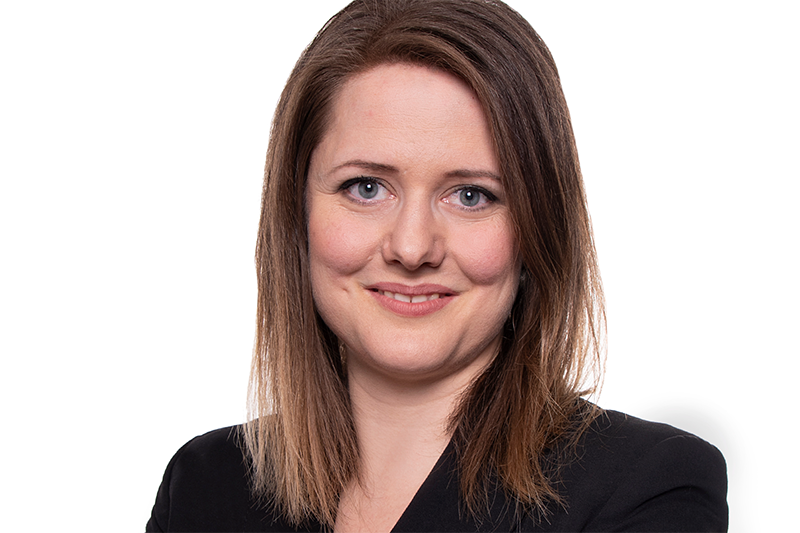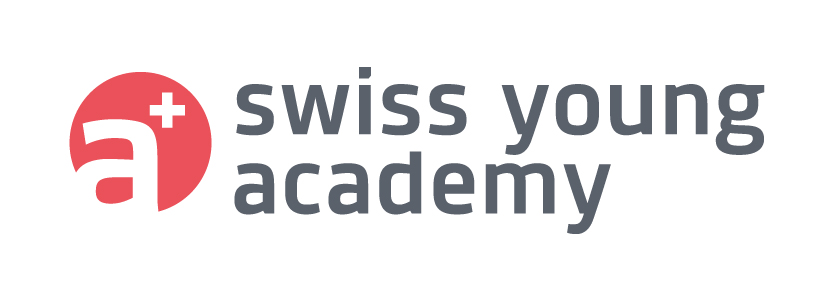Networking science.
"Artificial intelligence doesn’t simply fall from the sky"
Interview I Astrid Tomczak-Plewka

Anna Jobin, you are currently focusing on the ethics of artificial intelligence. Can we teach ethics to ChatGPT?
That’s an impossible question to answer! The real questions should be how we manage technology, what we expect from technology, and how it impacts our world. I’ve been working together with ethicists to examine ethics guidelines for AI. As a social scientist, I’m interested in what values are behind such guidelines, what values are projected into them, and what standards come out of them. After all, it’s not like artificial intelligence simply falls from the sky and we just have to live with it. People can decide where and how AI is used – or not used. Even though it may sound banal, that fact still hasn’t really been understood everywhere, neither in politics nor in society as a whole.
Still, many people are afraid of artificial intelligence. They fear, for example, that it could start acting on its own accord.
It’s important to be aware of these fears, but it’s also worth looking at who fuels them and how they are expressed. Essentially, the fear of losing control – that all sorts of automated decisions will suddenly be made and we could lose some of our autonomy – is entirely legitimate. Many examples of this exist, such as the problematic allocation of resources to the unemployed in Austria, the automated grading debacle in England in 2020, and the flawed and discriminatory system of pseudo-surveillance associated with welfare assistance in the Netherlands. They all had nothing to do rebellious robots but instead with deliberate decisions. Humans were the ones who decided which criteria to use and how to apply them. In the end, we need to approach this topic like any other technological development: we have to think about how we are going to manage it and how we are going to respond to it politically and as a society.
"In the end, we need to approach this topic like any other technological development: we have to think about how we are going to manage it and how we are going to respond to it politically and as a society."
You have three children. How does being a mother influence your work and research?
Just like other facets of my life, it has always affected me on many levels. I don’t actually like to speak about it publicly because my family is a private matter and because biases against mothers continue to be widespread. On the other hand, visibility can also bring about positive changes, so I tend to evade this question less than I used to. And being a mother even has some beneficial side effects. For example, I research contemporary society, and thanks to my children I’m even closer to everyday digital life than I would otherwise be. That means I learn about certain platforms for children and adolescents, about opportunities and risks, and about topics and types of use long before they have entered mainstream research. Of course in the end, it isn’t about whether a particular person has children or not, but about including different perspectives. From research on science as a discipline, we know how important it is that people with different life experiences and life circumstances are active in science.
And after all, bringing different perspectives into the Swiss Academies of Arts and Sciences is one of the Swiss Young Academy’s (SYA’s) goals. What led you to become one of the SYA’s founding members?
Since my very first day at university, I’ve been interested in pursuing interdisciplinarity and exchanging ideas with others. The Swiss Young Academy is an invaluable vehicle for doing just that. What I especially like about the Swiss Young Academy is that its members don’t have elitist attitudes but wholeheartedly embrace interdisciplinarity. It’s not about being a platform for excellence – there are prizes for that. The Swiss Young Academy gives us the freedom to become involved and exchange ideas with each other – without the pressure to produce or to publish. I also very much appreciate the Swiss Young Academy’s diversity.
"The Swiss Young Academy gives us the freedom to become involved and exchange ideas with each other – without the pressure to produce or to publish."
You were involved in, among other projects, the Swiss Young Academy’s project on COVID-19 fake news (see link below). The findings of your investigation will be published shortly. What can the Swiss Young Academy do to help people maintain distance from conspiracy theories?
Our main goal was not to reach and appeal to every individual. Rather, we wanted to present the current state of knowledge on this topic, how expert scholars and practitioners view the future of this issue, and what effective prevention could look like. For example, a term used again and again in this context is “literacy”. But what does that really mean? That people should critically consider and question things? Then that’s exactly what they end up doing with true information as well. Suddenly, people no longer believe anything that’s printed in the newspaper or shown on television. In fact, literacy is not just about questioning everything and piecing together your own version of the truth. Instead, it’s about evaluating and questioning what, how, and according to which basis information is weighted. For effective prevention, trustworthy institutions also play an important role, as do technologies, design decisions, and various other aspects.
Do you have a wish for the Swiss Young Academy as it goes forward?
I hope that members’ interactions remain as constructive as they are now and that the Swiss Young Academy continues to serve and be heard as an autonomous, independent voice for academia and for young academics.
"The academic world is full of smart people, but I’m most impressed by the ones who also embrace their humanity."
Looking back on your academic career path, are there any role models or other people who have significantly influenced you – now or in the past?
Time and again, I have encountered people who have inspired and influenced me – most of all my generous mentors. The academic world is full of smart people, but I’m most impressed by the ones who also embrace their humanity.
What personal goals do you still have for your career?
I really enjoy my current mix of activities, and the Human-IST Institute at the University of Fribourg is a great place to do interdisciplinary research. But one goal that remains is to at some point attain more job security than the current structures afford us early career researchers. These structures also create strange incentives. For example, when I was presented with the opportunity to become president of the Federal Media Commission, more than one professor actually advised me to turn it down so I could focus entirely on getting published. I’m glad I didn’t follow that advice. As a result, I may now have fewer publications to my name, but I’m benefitting from a unique, extremely meaningful experience.
What tips would you give young people who are just starting to make decisions about their studies or career?
I didn’t have a very strategic approach and don’t claim to be a good example (laughs). So don’t listen to me. I did pretty much everything wrong – from choosing an interdisciplinary course of studies to pursuing an external doctorate – but time after time I had the benefit of good luck. Perhaps I’d offer this advice: if something is important to you, ask people who respect your values for support – and then go for it.
Biography
Anna Jobin was born in 1982 in Belp. She grew up in the eastern part of Switzerland, where she obtained her university entrance qualification with a focus on the natural sciences. She studied sociology, economics, and business informatics at the University of Fribourg (Switzerland) and went on to do research at the Swiss Federal Institute of Technology in Lausanne (EPFL), Cornell University, and Tufts University. After writing her dissertation on web search advertising algorithms and obtaining her doctorate from the University of Lausanne, Jobin worked on the ShapingAI project as a postdoctoral researcher at the Swiss Federal Institute of Technology Zurich (ETH Zurich) and as a senior researcher at the Alexander von Humboldt Institute for Internet and Society (HIIG) in Berlin. Currently, she works as a researcher and lecturer at the Human-Centered Interaction Science and Technology Institute (Human-IST Institute) at the University of Fribourg, where she also serves as a study advisor for its new English-language Digital Society master’s programme. In addition, Jobin has served as president of Switzerland’s Federal Media Commission since 2021.
